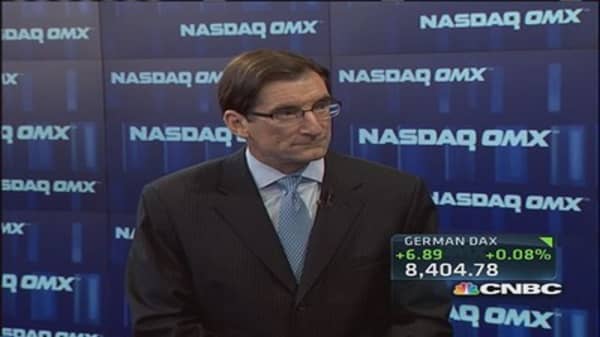Asked whether it was another exchange such as Arca or the New York Stock Exchange, Greifeld would not identify the outside party where the problem occurred.
He also defended his decision Thursday not to address the public during the shutdown or afterwards.
Greifeld said he and others working on the problem were too busy trying to get operations restarted to make statements.
"Communication was done and we came back and we came back successfully," he said. "It's not our job nor will it be to go on the press, to the press and the public while we focus on the issue."
The remarks didn't seem to placate a market angry over the Flash Freeze, as it is being called.
Investor Doug Kass at Seabreeze Partners called it "Greifeld gobbledygook" and said, "On CNBC, Greifeld talks the talk but doesn't walk the walk."
CNBC's Jim Cramer vented his outrage at Greifeld's remarks.
In a statement late Thursday, the Nasdaq said it knew 30 minutes into the outage what caused the problem, but it was another two-and-a-half hours before officials were ready to resume activity on the all-electronic market.
Nasdaq identified the problem as a "connectivity issue between an exchange participant and the SIP," or Securities Information Processor--essentially the system that receives all traffic on quotes and orders for stocks on the exchange.
(Here's a look at how shares of Nasdaq-OMX are trading in pre-market activity.)
Greifeld said problems with the coordinated feed that goes out to the public would have given insiders who could have traded elsewhere an unfair advantage over traditional "long only" investors who trade strictly through the Nasdaq.
"The way we handled the problem is there's no liability," he said. "No trading happened. It was a regulatory halt. Nobody was relatively advantaged nor disadvantaged. Everybody was on the same footing."
_ By CNBC's Jeff Cox. Follow him @JeffCoxCNBCcom on Twitter.





